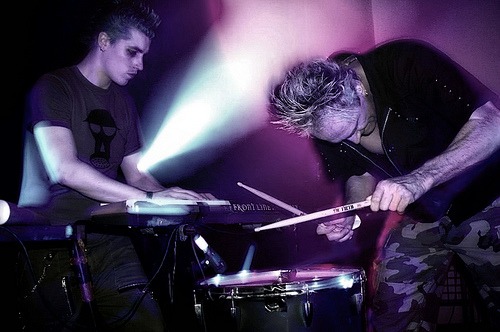Industrial music is a music genre that has transgressive, harsh, and proactive themes as well as sounds. Music enthusiasts call this genre the most aggressive and abrasive mix of electronic music and rock with a blend of avant-garde electronics experiments as well as a punk provocation.
The name industrial music was made during the mid-’70s when the record company named Industrial Records was founded by the members of the group’s Monte Cazazza and Throbbing Gristle. Despite the term being applied by small coterie groups and individuals that were connected with Industrial Records during the late ’70s, the name was broadened. It later included artists that were influenced by the original movement or even artists who use industrial aesthetics in their music. In this article, we are going to know more about the history of Industrial music and how it made its mark in the music industry.
What are the Characteristics of Industrial Music?
The creation of industrial music was a result of the age where the control and access of information were being one of the significant tools of power. At its creation, industrial music was far from any other kind of music because it uses technology along with disturbing themes and lyrics that tear apart preconceptions about the rules of music. In fact, industrial music artists even made these goals explicit, they even drew connections in their music regarding the social changes they wished to argue.
Most of the first industrial music tracks have a stark percussion, tape editing, as well as loops that are distorted to the point that it has turned into harsh noise. In industrial music, traditional instruments were often played in highly modified or non-traditional ways. The vocals of the songs in this genre were sporadic, and the early performances of the artists in this genre often involved provocative and taboo-breaking elements such as sadomasochistic elements, mutilation, and totalitarian symbolism or imagery.
As the industrial music progressed during the 1980s and 1990s, it became influenced by other music such a reggae, new wave, hip hop, disco, jazz, and new age music. Some musical styles were also added to the industrial music genre. During this period, the tracks under this genre include mixtures of ambient music, noise music, post-punk, folk music, and electronic dance music.
History
Industrial music was created as a response to the new noises of the mechanized and modern world. The pioneers of this genre were championing a notion where anything that could make a sound can be considered as a musical instrument, and anyone who can produce a sound can be a musician.
The phrase” Industrial Music for Industrial People” was made coined by the artist Monte Cazazza. He used the phrase to be the strapline for the record label named Industrial Records. This record company was founded by the British art-provocateurs band called Throbbing Gristle. These people were also intellectually and politically motivated, and they also aimed to use industrial music to be the voice of the ordinary people during the age where information can transfer through electronic mediums.
The term industrial music may be coined during the ’70s but, industrial music can be seen as a genre that extends from the experimental electronic music movement back in the 1920s, ’30s, and ’40s that was created by French composers Pierre Henry and Pierre Schaeffer. This music, later on, became minimalist electronic avant-garde compositions such as Steve Reich’s album entitled “Different Trains” (1988) features train noises and announcements that are looped over repetitive melodies.
The development of industrial music was led by bands and artists such as Throbbing Gristle, Cosey Fanni Tutti, Monte Cazazza, Cabaret Voltaire, Boyd Rice, and Z’EV. When the genre went more mainstream, it saw the emergence of artists and bands such as Skinny Puppy, Trent Reznor, Nine Inch Nails, as well as Ministry and Marilyn Manson. These artists took industrial music a step closer to the realms of metal and glam rock.
Today, the industrial music genre is still strongly represented by bands and artists such as 3TEETH, Sally Dige, and Factory Floor. These artists incorporated more accessible melodies and beat them into their sound.
